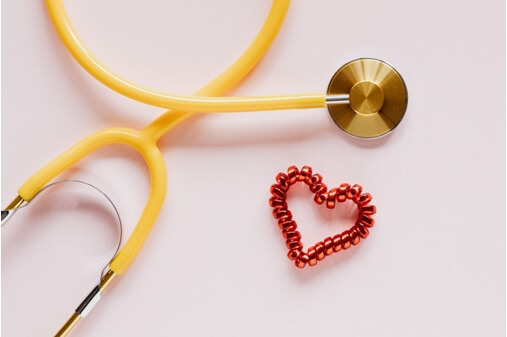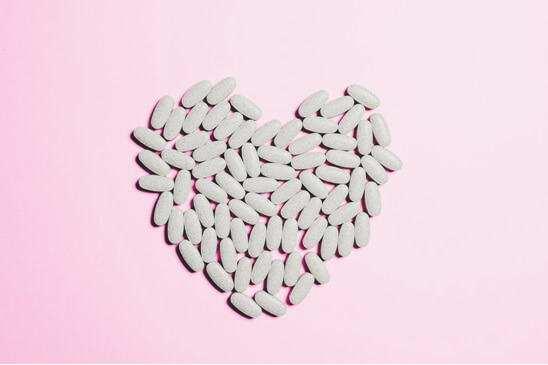The Reality
An underlying condition that increases the risk of erectile dysfunction is high cholesterol. Cholesterol is a lipid or “fat-like” substance that resides in the cells of an individual’s body. Cholesterol is carried through an individual’s blood along with proteins.
There are 2 types of cholesterol:
LDL (low density lipoprotein)
And
HDL (high density lipoprotein) cholesterol
LDL cholesterol is known as “bad” cholesterol; this type of cholesterol can obstruct the walls within the arteries due to development of excess fatty deposits within the blood vessels.
HDL cholesterol is known as “good” cholesterol; HDL takes excess cholesterol and delivers the excess back into the liver.
High cholesterol and low HDL cholesterol can contribute to adverse medical conditions such as heart disease which increases the risk of erectile dysfunction. High cholesterol can affect blood flow within the body which increases the likelihood of erectile dysfunction.
Before we dive more into the correlation between high cholesterol and erectile dysfunction let’s talk about how erections work.
During an erection, chemicals are released (such as nitric oxide) causing the arteries within the penis (corpora cavernosa) to relax resulting in the corpora cavernosa to be filled with blood. This allows the penis to become stiff as well as elongated.
How are Cholesterol and Erectile Dysfunction Related?

High cholesterol impairs blood flow, narrows vessels, and contributes to a higher risk for erectile dysfunction. In addition research articles such as Hypercholesterolemia-induced erectile dysfunction… recognizes that high cholesterol not only increases the risk of erectile dysfunction but also that high cholesterol can induce erectile dysfunction through the increase of oxidative stress, alteration of smooth muscle cell function, and reduction of nitric oxide signaling (US National Library of Medicine, Musicki, et. al). This reveals that high cholesterol causes a reduction in nitric oxide production. The activity to properly release nitric oxide within the bloodstream is needed in order to maintain an erection as the relaxation of penile tissues causes erectile engorgement. In addition, research indicates that high cholesterol causes the impairment of endothelial cells which is attributed to oxidative stress within the corpus cavernosum and can progress erectile dysfunction. The higher an individual’s LDL levels as well as cholesterol are, the more likely it is that they will develop erection dysfunction and in severe cases, can lead to impotence.
High Cholesterol and Blood Flow
The build-up of high levels of LDL cholesterol within the arteries can narrow blood vessels. High cholesterol can result in atherosclerosis (blood vessels that are not able to dilate properly) and a high density buildup of fats within the penile vasculature which can restrict blood flow. High cholesterol resulting in the build-up of cholesterol plaque is one of the leading causes of vasculogenic erectile dysfunction. The pathogenesis of atherosclerosis as well as the build-up of cholesterol involves plaque propagation, which can result in plaque rupture and the impediment of blood flow (US National Library of Medicine, Roy, et. al). The inadequate circulation of blood as well as the narrowing of arteries is a result of arterial plaque or the accumulation of fatty deposits caused by high cholesterol.

The Effects of Cholesterol
High cholesterol can lead to other physical health conditions that can further progress erectile dysfunction. High cholesterol increases the risk of obesity, and heart disease which are correlated with the progression of erectile dysfunction and further increases the risk of erectile dysfunction.
In general, high cholesterol leads to:
- The buildup fatty deposits in the arteries and blood vessels leading the formation of plaques
- Impairment in the dilation of blood vessels
- The narrowing or slowing down of blood flow
This in turn increases the risk of:
- Heart attack
- Heart disease
- Stroke
- Peripheral vascular diseases
This is in addition to the correlation between high cholesterol and the risk of erectile dysfunction.
Reversing Bad Cholesterol

Let’s talk about reducing bad cholesterol!
- Eating healthy foods
Changing your diet can reduce cholesterol
- Reducing saturated fat intake: Saturated fats, found in dairy products as well as red meats can increase cholesterol. Decreasing the consumption of saturated fats by limiting red meat and full-fat dairy products can reduce LDL cholesterol — the “bad” cholesterol.
- Eliminating “trans” fatty acids: Trans fats also listed as “partially hydrogenated vegetable oil,” can be used in butter and store-bought foods such as cookies and cakes. Trans fat raises cholesterol levels; eliminating trans fat from your diet through the reduction of unhealthy foods and substitution of healthy alternatives can help to reduce cholesterol level.
- Eating foods rich in omega-3 fatty acids: Incorporating healthy fatty acids can reduce cholesterol levels and have heart-healthy benefit such as the reduction of blood pressure. Omega-3 fatty acids foods include salmon, nuts, chia seeds, brussel sprouts, flaxseeds and more.
- Increasing soluble fiber intake: Soluble fibers can decrease the absorption of cholesterol into the bloodstream. Soluble fiber can be found in oatmeal, whole grains, avocados, apples, kidney beans, pears and more.

2. Increasing physical activity and exercising
Exercising can help raise HDL (good) cholesterol
Incorporate at minimum 30 minutes of exercise 5 times a week
Or
Engage in vigorous aerobic activities for 20 minutes 3 times a week.
Ways to incorporate daily exercise:
- Take a brisk walk during lunch break
- Ride a bicycle to work
- Play a sport
- Walk on the beach
- Outdoor events with friends
- Hiking in nature
A research study facilitated by Harvard found that just 30 minutes of walking a day was linked to
a 41% drop in risk for erectile dysfunction. (health.harvard.edu)
To stay motivated, find an exercise buddy or join a group!

3. Quit smoking
Quitting smoking improves HDL (good) cholesterol levels
- Find support groups and ask your physician about therapy options
- Upon 3 months of quitting smoking, blood circulation as well as lung function starts to improve and after a year of quitting, the risk of heart disease can be cut in half
4. Engaging in weight loss
Engaging in weight loss – exercise and intake
- Incorporate more fruits and veggies into your diet
- Avoid sugary drinks such as soda, fast food and overly processed meats
- Incorporate or substitute with low fat foods such as leafy greens, mushrooms, tart cherry juice, ancient grains (like quinoa), legumes and sweet potatoes
- Incorporate more daily activity such as taking the stairs instead of the elevator and engaging in activities such as yoga.
5. Alcohol in moderation
Alcohol in moderation — research indicates that moderate consumption can raise HDL (good) cholesterol
- Too much alcohol can lead to serious health problems such heart failure, stroke and increased blood pressure.
- Research indicates individuals that drink more than three alcoholic drinks in one day, are at high risk of cardiac disease
- Moderation is key if you plan to drink
6. Statins as a treatment option
Statins are prescribed by physicians to lower LDL (bad) cholesterol
- Statins slow the production of cholesterol and block HMG-CoA reductase, a protein the body needs for cholesterol production within the liver.
- Statins inhibit the HMG-CoA reductase protein, allowing for the body to generate more receptors that remove cholesterol from the blood.
- Speak with a physician about Statins as a treatment option for high cholesterol

All of the small changes add up! It’s important to take a multi-faceted approach in the reduction of high levels of cholesterol.

How Can You Prevent High Cholesterol?
It’s important to maintain a healthy cholesterol level. A healthy cholesterol level depends on your level of HDL (good) cholesterol ratio with your level of LDL (bad) cholesterol. It’s essential to take into account risk factors for heart disease, age, activity and current health conditions when considering your healthy cholesterol level.
Healthy life-style changes for the prevention of high cholesterol can include:
- Eating a low sodium diet which emphasizes vegetables, fruits, and whole grains
- Maintaining a healthy weight
- Exercising and engaging in daily physical activity
- Managing stress
- Quitting smoking
Boston Medical Group Telemedicine offers a comprehensive set of treatment options for patients with erectile dysfunction stemming from high cholesterol. Boston Medical Group Telemedicine offers treatment options that
won’t interfere with current lipid lowering medications our physicians recommend the best course of treatment for erectile dysfunction after a comprehensive assessment. Give us a call and we can help you set up an appointment today!

